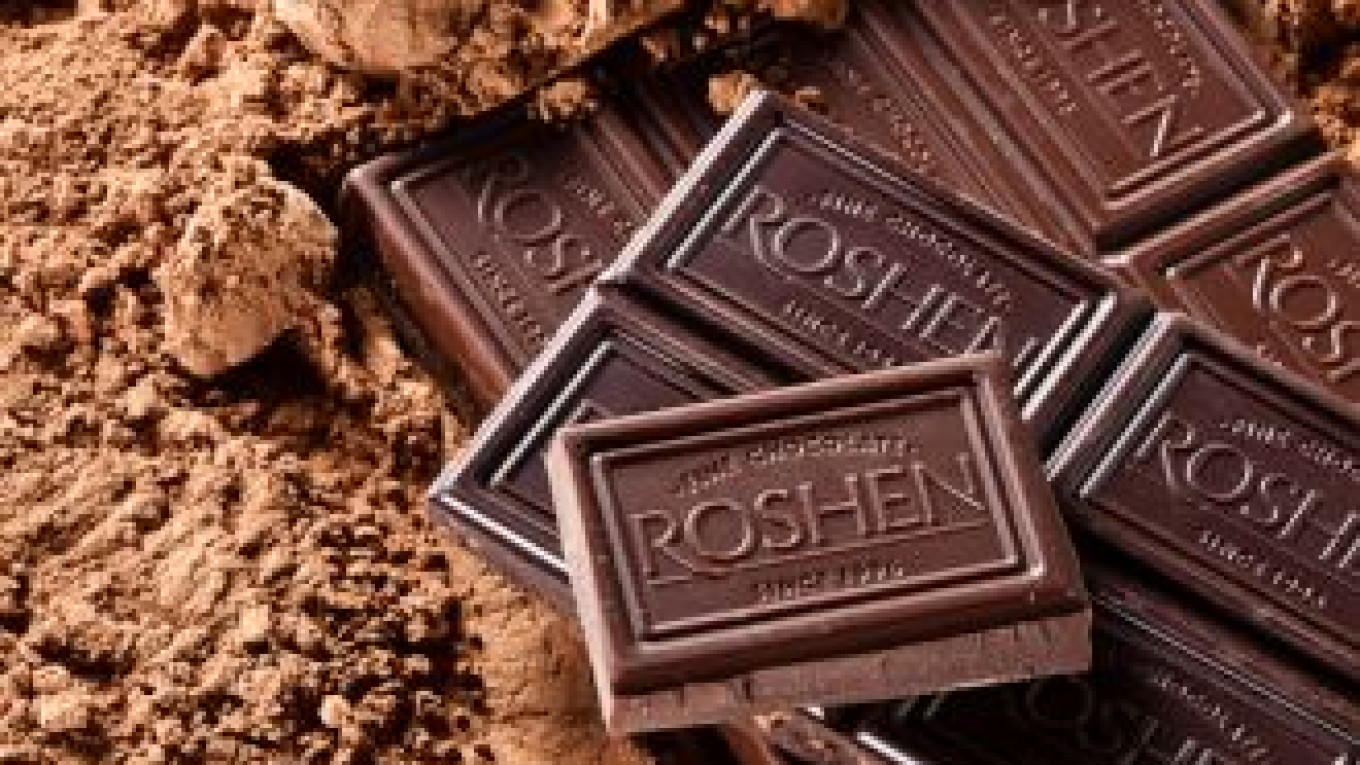Ukraine's leading confectioner Roshen has suspended its exports to Russia after chief sanitary inspector Gennady Onishchenko banned the products, saying that they don't meet quality and safety standards.
The Federal Consumer Protection Service inspected Roshen's products from Moscow stores and found that they had "toxic impurities" while? milk chocolate produced by the company even held traces of benzopyrene, a carcinogenic chemical, according to an announcement published on the service's website.
The faulty products were shipped from four of Roshen's Ukraine-based factories. The chocolates manufactured at the Lithuanian and Russian factories did not incur the same condemnation.
"The quality and safety requirements have been breached," Onishchenko told Interfax this week. "There are grounds to talk of systemic violations of our country's current legislation on protecting consumer rights."
But Roshen's representatives said they have not received any formal complaints about their products from Russian authorities and neither have their Moscow distributors from which the samples were taken. But the company has decided to voluntarily suspend the supply of their products until the situation clears up.
"Roshen has always complied with all the rules for certification of confectionary products and met all the necessary health standards," according to the company's statement.
Roshen doubts that the Federal Consumer Protection Service used the right samples in their quality checks, the statement continued. They also noted that the presence of benzopyrene in the chocolates can not be in violation of Russian regulations because the country has no official norms for how much of this substance can appear in confectionary products.
Roshen is not the first Ukrainian producer to get banned from Russia. Onishchenko stopped the supply of Ukrainian cheeses to the country in February 2012, though supplies were later resumed, and has now concentrated his efforts on an inquiry into Ukrainian baked goods.
As with previous bans, experts suspect that there are political motives for the decision. Ukraine has increased an emergency car tax in March to protect local producers from a high volume of imports. Russia has lost an estimated $36 million as a result of this tax, with the ban on Roshen chocolate seen by some as retaliation.
Pavel Rozenko, a member of the Ukrainian parliament, said the move is likely Russia's answer to his country's continued refusal to join the Russian trade bloc, which already includes Belarus and Kazakhstan. He added that he expects other similar measures to be taken by Russia as Ukraine readies to sign a free trade agreement with the European Union, the New Region news agency reported.
Onishchenko, however, disagreed with the suggestion. He said the consumer rights watchdog had asked Ukrainian authorities to set up a quality control system when they were dealing with the cheese ban. He added that otherwise, more bans would be imposed in the future.
Contact the author at e.smirnova@imedia.ru
A Message from The Moscow Times:
Dear readers,
We are facing unprecedented challenges. Russia's Prosecutor General's Office has designated The Moscow Times as an "undesirable" organization, criminalizing our work and putting our staff at risk of prosecution. This follows our earlier unjust labeling as a "foreign agent."
These actions are direct attempts to silence independent journalism in Russia. The authorities claim our work "discredits the decisions of the Russian leadership." We see things differently: we strive to provide accurate, unbiased reporting on Russia.
We, the journalists of The Moscow Times, refuse to be silenced. But to continue our work, we need your help.
Your support, no matter how small, makes a world of difference. If you can, please support us monthly starting from just $2. It's quick to set up, and every contribution makes a significant impact.
By supporting The Moscow Times, you're defending open, independent journalism in the face of repression. Thank you for standing with us.
Remind me later.


